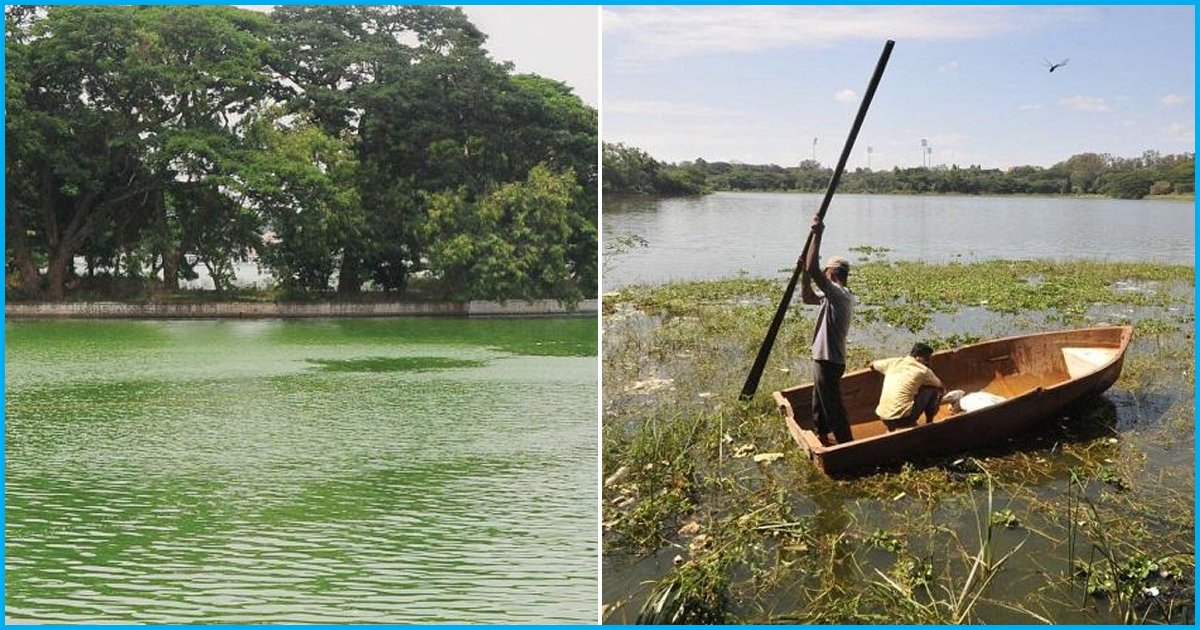
In A Major Setback, Karnataka Government Hands Over Custody Of Lakes To Minor Irrigation Department
27 Feb 2018 11:43 AM GMT
In a major step, Karnataka Government has decided to handover the custody of the State’s lakes to the Minor Irrigation Department (MID). Earlier, it was the duty of, the Karnataka Lake Conservation and Development Authority (KLCDA) to protect the lakes.
However, the Government has given marching orders to KLDCA without any consultation. On Thursday, the amendment to the Tank Development Act was adopted in the Legislative Assembly despite the low attendance of members. The next day without any discussion or debate on the Act, it was passed in the Legislative Council.
The KLCDA Act of 2014 has been revoked to pass the new act, and MID has been given the same custody and powers as the KLCDA to supervise rejuvenation of several urban local bodies.
As per the statement of T.B. Jayachandra who is a Minor Irrigation Minister, the step was taken to end the ongoing confusion and problems over ownership of lakes, and to make sure that maintenance and development of lake are done through ‘well trained’ professional engineers who are currently working in the department.
Schemes And Programmes Remained On The Paper For Two Years
What is surprising here that KLCDA which was given the same responsibility in 2016 had hardly gone to the ground due to imperfect channelisation of fundings. It was reported that despite 96 posts, people were appointed only for 14 posts.
Positions including Police and Revenue wings which are meant to investigate the development and complaints of infringement of lakes remained vacant. Officials stated that the KLCDA never informed the case of lack of funds and resources. Therefore, it failed to hold the responsibility as the custodian of all lakes.
For the funding purpose, the State Cabinet had ruled in August 2016 that KLCDA will be given cess that had to be collected from Urban Local Bodies. However, only two districts namely Chitradurga and Davanagere provided the cess amounting to less than Rs 1 crore. Bengaluru had not paid up Rs 65 crore that it was supposed to pay the body for development of lakes.
It was not the only case as several other schemes and plans turned out to be a failure. KLCDA failed to bring in 176 dry lakes under the Wetlands Rules. Also, citizens volunteers were not involved in the programmes after the names of local politicians were given space on the list. The completion of projects was also uncertain, for instance, the Agara lake rejuvenation is about to complete, Madiwala lake biodiversity park project worth Rs 25 crore will take another two years to execute, an official told The Hindu.
KLCDA has not received any information yet; it may be informed of the same in upcoming days. “We found out through newspaper reports that the Act has been repealed. If it has been abolished, then the Authority ceases to exist,” an official further said.
From Problem of Funding and Personnel To No Community Participation
It is expected that the new Act would come into effect in next three month. The rules of the new Act will be merged with KLCDA, and it has to perform as a regulatory body that will look over the functioning of local authorities, Minor Irrigation officials said to The Hindu.
Further, the personnel and funding problem still exists as Bengaluru vacancies are still vacant. At present, the department receives Rs 150 crore for 3,607 lakes across the State. Sometimes, it even gets less than one-third of the amount required to revamp only two lakes such as Bellandur and Varthur lakes.
The most disturbing change under the amendment is that there would be no involvement of citizen volunteers as the clause of ‘community participation’ in the lake development program is not mentioned in the new Act. Even no initiative has been taken to encourage to make the lakes a tool to learn about biodiversity.
Water conservationist, S. Vishwanath told The Hindu, “This is a retrograde step. The KLCDA Act 2014 was imperfect, but in principle, it allowed for community participation and provided teeth for policing and management. What the Minor Irrigation Department has are engineers. However, building tank bunds and weirs are the easier steps in urban lakes. For tackling wastewater and sewage, which is the biggest challenge in lakes here, you need ecologists and those specialized in wetlands,”
According to the report of The Hindu, Ram Prasad, co-founder of the informal group Friends of Lake said that new bill stands against the 74th Amendment which supports local people participation. These changes were made deliberately to kill an institution (KLCDA). Thus, barring citizens from involvement means neither public nor local elected representatives have any role to play in the Government functioning. Friends of Lake will soon write to the Governor not to sign the Act.
Know What CAG Report Says About KSPCB
AS per the report submitted by the Comptroller and Audit General (CAG) on Thursday in the assembly, the Karnataka State Pollution Control Board (KSPCB), which is a body that evaluates the condition of lakes has failed in its job. It has so far not taken any action against the polluting lakes in the city.
The inspection of air quality and regulating industries were reduced to 44 percent lower than the number of probes it should conduct. Only three percent of sectors had submitted legally-mandated Environmental Audit Reports to KSPCB failing remaining 97 percent who had not provided any report.
It almost ignored the orders given by the National Green Tribunal (NGT) not only on cleaning up Varthur and Bellandur lake but also in identifying domestic industrial polluters and taking any action against them.
 All section
All section













